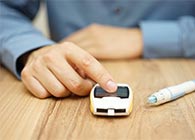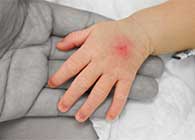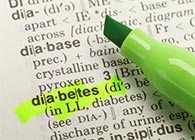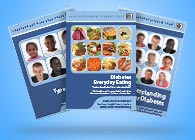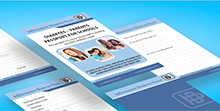Carers and hypoglycaemia
Carers and hypoglycaemia
Certainly from the contacts IDDT has had with carers, the greatest problems occur as a result of hypos, the fear of them, the handling of them, the responsibility for dealing with them correctly or being unable to cope with their partner’s behaviour while hypo. We have no magical answers to these problems but it is necessary to acknowledge the difficulties that some carers experience.
Embarrassment
It is well recognised that the people with diabetes hate the embarrassment that hypos can cause, but carers can also suffer from embarrassing hypos too.
Quote from a carer: “I remember going to a function at my son’s school and half way through my husband, who had virtually lost his warning symptoms of hypos, started to behave in a silly fashion, as if he was drunk. I knew he was hypo and had to rescue the situation. But much embarrassment was caused for my son, even though I went to the school and explained. Do not let anyone believe that diabetes does not affect the whole family.”
Violence and Abuse
One of the most common difficulties expressed to IDDT by carers is the violent, aggressive or abusive behaviour of their partner when they are hypo. Many of these carers are women – maybe they feel unable to be physically in control because of the greater size and strength of their partner but it could simply be that women are more ready to talk about this issue than men.
We recognise that a lot of people never have hypos of this type so it is difficult to understand what it is like to live with the fears that violent and/or abusive hypos produce for the carers who have to deal with them. It is understandable that frustration is added to the fears because no one understands how the carer feels – family, friends and the health professionals probably never see their partner in a hypo and so he/she appears OK and very ‘normal’!
Quote from a carer in just this position. She visited her GP to ask for help. His comment was “Oh, he seems a very nice gentle soul.” Undoubtedly true when he was not hypo. This lack of belief of the carer’s position is insulting and adds to the problems.
Despair
This is another emotion that is frequently expressed to us. Not only do this group of carers have to deal with violent, aggressive or abusive hypos, but they have to live with the fear of the next one. If the hypos are usually nocturnal, then going to bed each night is accompanied by fear and poor sleep. The ongoing nature of these hypos does lead some partners to feelings of despair and the relationship suffers accordingly.
Quote from a carer: “Sometimes I just want to run away and never come back, but I don’t and I can’t.”
Do we have any advice?
- Take action! Doing nothing can make a difficult situation worse, can increase tension and affect your own health.
- If possible, talk to your partner about what happens when they are hypo and about your fears.
- Discuss their diabetic control and if it is possible to avoid hypos by raising the blood sugars a little.
- Ask if you can attend the clinic with your partner so that you can both get advice.
- If your partner is unwilling for you to attend the clinic with him/her, then make an appointment for yourself to see the diabetes specialist nurse. While he/she cannot discuss your partner’s health, start here and express your feelings.
- Try to meet other carers in similar positions – the nurse may be able to help you with this. Talking to someone that understands can be a great help.
- If you feel you can no longer handle the hypos, call the GP or 999 and ask for an ambulance with paramedics aboard. [If this keeps happening somebody may start to take notice of your problems!]





